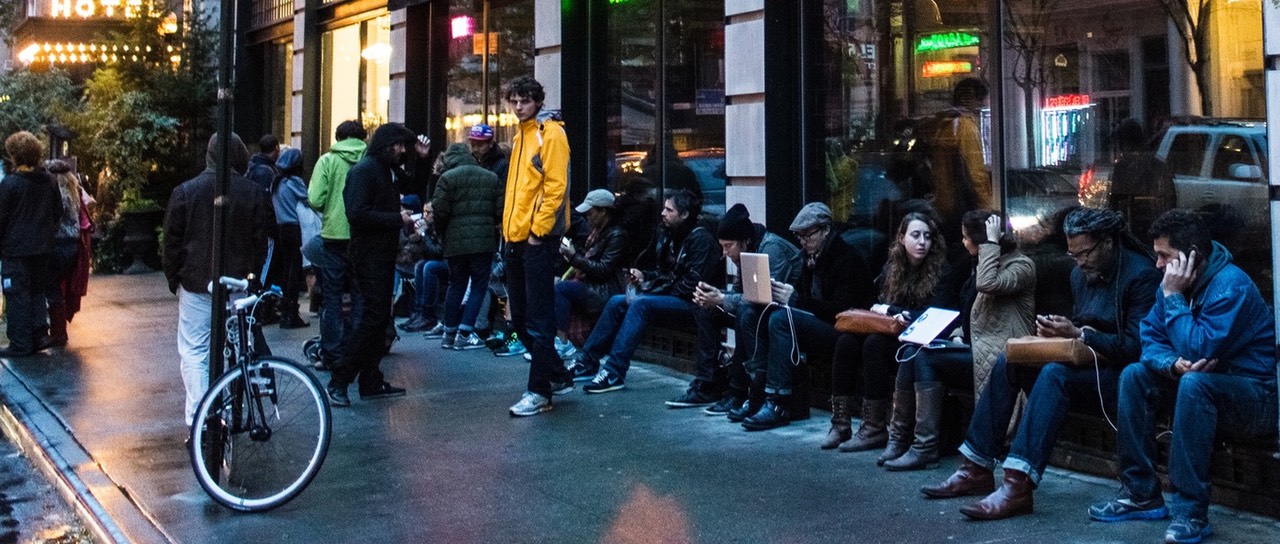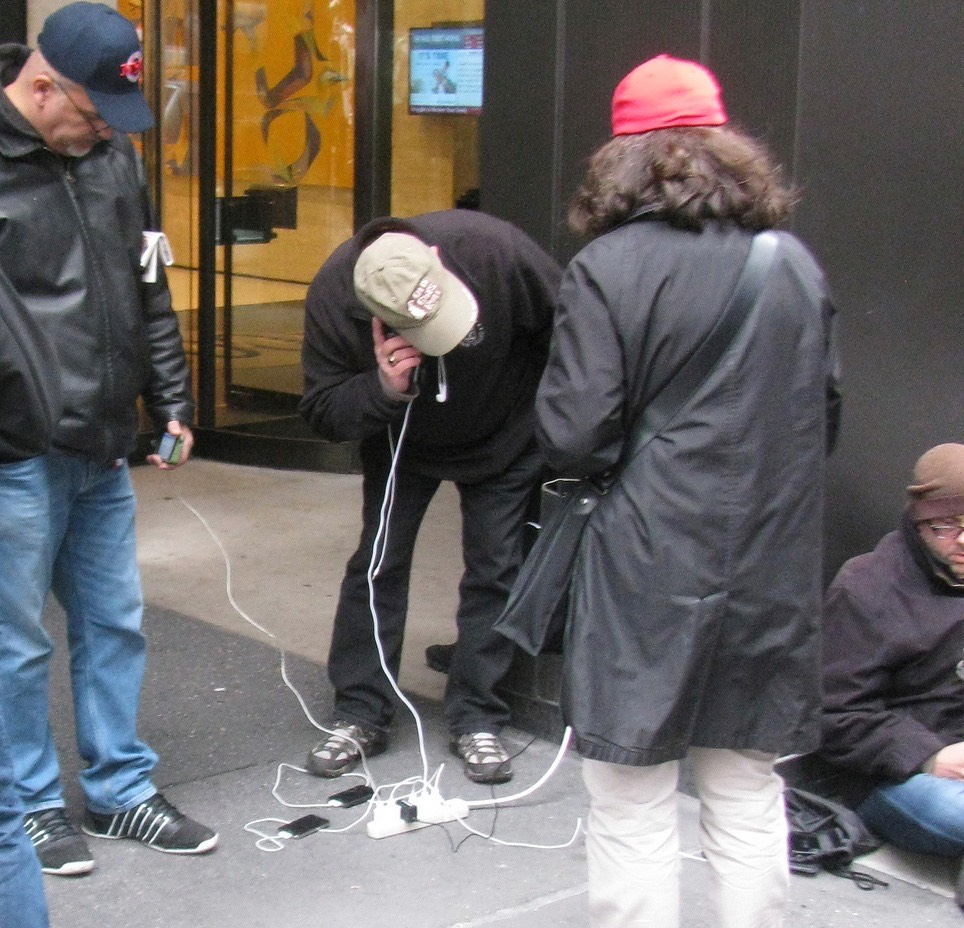As you probably know, Hurricane Sandy has left thousands in New York and nearby without power. Because of this, people there have been improvising when it comes to getting their cell phones charged.

(Photo Credit: Dan Nguyen)
I grew up in a small town where we lost electricity fairly often, but usually we still could use the phone if the power went out! That's because land-line phones run on their own (DC) power supply. So when AC power was out, the phone system still worked just fine.
These days, it's different. So many people have given up on having a land-line, in favor of going cellular only. And I'm willing to bet that most people's land-line phones won't even work without AC power! (I checked — we still have a phone extension that doesn't require AC, though our main cordless phone does.)

(Photo Credit: edenpictures)
It's really a shame in our society that when we raise our technology higher and higher, we throw away the scaffolding that got us there. And that can be bad news in a disaster, when the high-tech utilities we have come to rely upon are out of commission, even if temporarily.
Telephony is just one of the utilities that we are losing our scaffolding for. Another essential technology that we're coming to rely on more and more is GPS. It's been called "the invisible utility." I recently watched this fascinating TED talk about GPS; I learned that it could be disrupted or spoofed pretty easily. It's not a big deal if GPS goes out in your iPhone and prevents you from finding the nearest Wal-Bucks, but it is pretty scary if it goes out when, say, a ship is trying to navigate into a harbor on a foggy night. The problem is that the older technology (e.g. lighthouses, radar) is being phased out in favor of GPS.
Back to New York: I've seen pictures of corner markets staying open, albiet dark, while the power has been out. Small shopkeepers can probably keep things running pretty well, though maybe they have to resort to some manual techniques for handling cash and giving out change. It's probably hard to handle credit cards if they are used to AC power for doing so. So certainly, as a resident, having some low-tech greenbacks on-hand is a good idea just in case the high-tech alternative is unusable.
What I wonder about, though, is how to the big stores — supermarkets, especially — handle a disaster where there are hundreds of hungry or panicked residents, and no way for employees to take their money? The employees are probably not even trained for low-tech contingency plans. It's sad to think about — those worried customers are probably going to turn into a rioting mob if the store they are at is unable or unwilling to sell them what's on their shelves.
What are the other technologies where we are unwisely removing their lower-tech alternatives?
